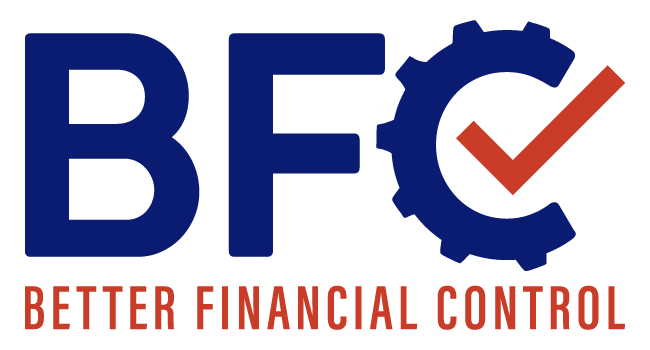As Dwight D. Eisenhower once said, “plans are nothing; planning is everything.” Taking the time to plan ahead, rather than taking a “Ready, Fire, Aim” approach, will almost always create better business results.
We are often tempted to act on impulse, thinking a spontaneous decision will save time and, therefore, money. But in doing so we often set ourselves up to fail.
In our latest blog, we dispel the notion of the “Ready, Fire, Aim” mentality, sharing how a little forethought, investment and planning can ultimately yield far better results.
Tag Archives: Financial Solutions
The only thing that chaos can produce is more chaos.
In business, disorganisation is self-perpetuating, creating more work, costing more money and producing more issues the longer it goes unchecked. It takes time to step away from your existing business structure and implement new protocols, but it is time that you will get back tenfold.
What’s more, a well-organised business is more efficient, productive, cost-effective and even more attractive to prospective investors, clients or future employees.
Learn the five steps to a well-organised business in the final blog of our three-part series.
The quirks of a business can be endearing. Its idiosyncrasies can be regarded simply as ‘the way we do things here’.
But these ineffectively-organised aspects of your business can escalate, causing frustration, embarrassment and financial impact while appearing unprofessional and far from reassuring to potential clients or investors.
When these processes have been in place for months or years, it is easy to disregard or overlook them, and far too much effort to correct. But these can become your greatest undoing.
Learn whether your business has its own characteristics, of if it is dangerously disorganised in part one of our new three-part series on effective business organisation.
Few issues can impact a business harder than unanticipated tax debt.
Worse, this impact reverberates throughout the business and even into your personal life.
Healthy bank account, healthy business, right?
Taking this approach to your company’s finances opens you up to a significant blind spot, preventing you from forecasting debt and preventing effective business management.
With a simple two-step approach, you can find financial stability, avoid or overcome debt and manage your company’s long-term health with effective financial management.
Discover how to better manage the financial aspect of your business in our latest blog, the final instalment of my series on business blin spots.
Accountability is an essential part of your financial operation. But if roles aren’t clearly defined and the company vision not regularly articulated, significant blind spots can emerge in your team’s understanding of accountability.
In our latest blog – part two in our five-part series on business blind spots – we focus on the importance of collaborative accountability. By collaborating with your staff members, outlining their responsibilities and ensuring that your financial structure is shared by everyone, you prevent blind spots caused by neglect, misunderstanding and lack of awareness.
Every staff member should be held accountable for their tasks and obligations, but it is you as a financial manager who is accountable for making that happen.
Learn more in our latest blog:
Many problems that arise in business can be avoided by first recognising five commonly-occurring blind spots.
The first of these is the concept of company finance planning. While finance planning may seem like an integral part of your business, if you aren’t executing it correctly, you are, at best, falling short of its potential and, at worst, completely wasting your time.
In our latest blog, we address this frequent blind spot, highlighting the reasons it can occur, the ways to overcome it and the long-term benefits it will produce.
Take a look now – we hope it helps to overcome some of your company’s financial blind spots.
Storytelling is one of the great life skills of human evolution. For millennia, we have used story to convey wisdom, teach lessons and advance knowledge.
Despite its prehistoric roots, storytelling is still a valuable skill in contemporary society, and even in business. When we convey our message in a more story-like manner, our audience, whether our staff or our clients, become more engaged, amused and connected, retaining the information better and building both confidence and loyalty in the brand.
Problem solving strategies can often be pre-emptively implemented before the true nature of the problem has been defined. In Part 4 of my problem-solving series, I discuss how uncovering the problem before rushing to the solution can save time and money, and prove far more effective than quickly rushing to the first solution that comes to mind.
Empathy can sometimes be seen as a spiritual practice, even a sign of weakness, with little place in the realms of business.
However, by adopting an empathetic perspective, we are far better able to navigate difficult conversations, company communication and problem-solving discussions. It is often our fixed perspective that can stand in the way of resolutions, so by bringing some empathy into your process, you can view issues from a greater viewpoint, illuminating the problem as a whole and helping you to understand why some of your team may not be able to agree with your opinion – or vice versa.
Far from a weakness, empathy can be a powerful tool in your management arsenal. Learn more in my latest problem-solving blog for business managers.
- 1
- 2


![CrossFit for Your Business: A 3-Step Guide to Organise Your Business [part 3] 2 Organise Your Business](https://betterfinancialcontrol.com/wp-content/uploads/2022/11/5E5016F7-FE2E-42D8-AE63-37599B23E01B-1400x796.jpeg)
![CrossFit for Your Business: A 3-Step Guide to Business Organisation [part 2] 3 Company Organisation](https://betterfinancialcontrol.com/wp-content/uploads/2022/11/BFC-Graphics-29-1400x796.jpg)






